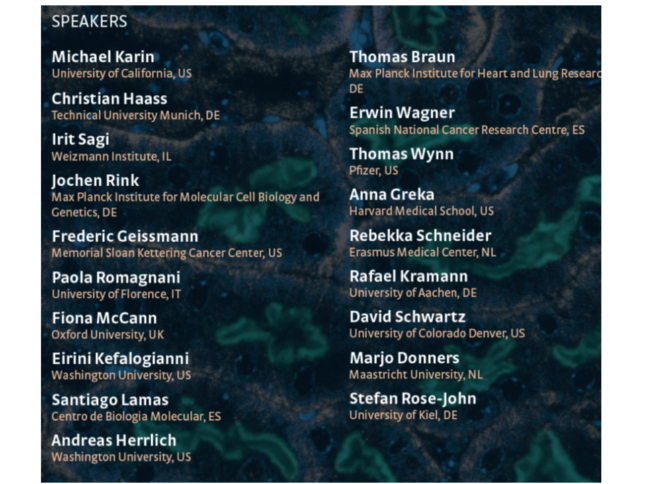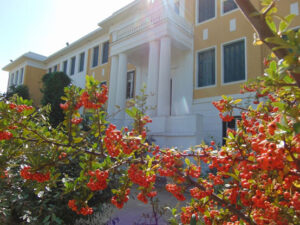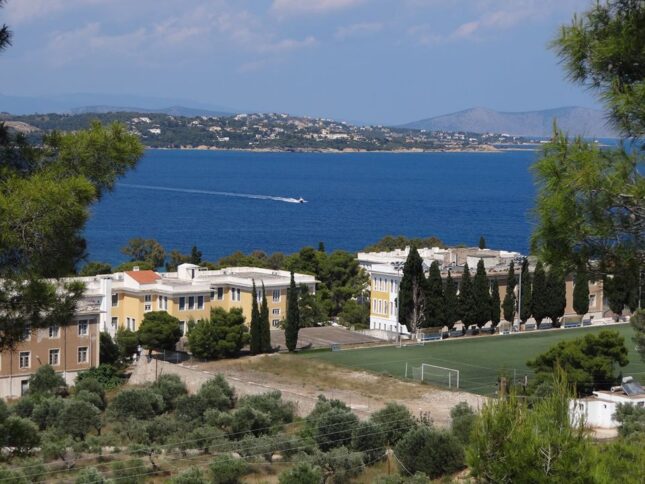 Attention, PhD students and Postdocs! It’s not too late to sign up for the EMBO-FEBS lecture course Molecular Mechanisms of Tissue Injury, Repair and Fibrosis, to be held May 23-31, 2019, on the Greek Island of Spetses.
Attention, PhD students and Postdocs! It’s not too late to sign up for the EMBO-FEBS lecture course Molecular Mechanisms of Tissue Injury, Repair and Fibrosis, to be held May 23-31, 2019, on the Greek Island of Spetses.
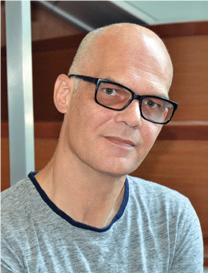
Andreas Herrlich, Course Director
The head organizer of the course is Associate Professor of Medicine Andreas Herrlich, MD, PhD, Division of Nephrology, Washington University. Eirini Kefalogianni, PhD, also from the Division of Nephrology, and Stefan Rose-John, PhD, University of Kiel, Germany, are co-organizers.
The highly successful EMBO-FEBS Courses and Workshops are organized by some of the leading scientists in their fields. Through the Courses & Workshops Programme, EMBO supports and encourages the sharing of scientific knowledge and skills across all career stages and disciplines in the life sciences.
The fibrosis lecture course will bring together leading researchers with early-stage researchers (doctoral and postdoctoral students) to review the latest insights into the molecular pathogenesis of injury-repair and fibrosis in different organ systems.
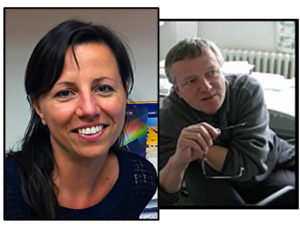
Course co-organizers, Eirini Kefalogianni and Stefan Rose-John
The intense – though inspiring – atmosphere of the lecture course encourages interaction between participants and speakers and provides a unique training and networking opportunity. The nine-day workshop features 19 speakers (see below) and includes lectures, small group discussions and poster sessions, as well as small group tutorials “under olive trees or on the beach at the beautiful Anargyrios and Korgialenios School of Spetses” venue.
“Our faculty consists of prominent researchers who will lecture on tissue injury, repair and fibrosis in almost any organ system you can think of, including the kidney, heart, lung, bone marrow, nervous system and skin,” says Dr. Herrlich. “We have invited speakers from translational research fields, pharma and drug development, as well as biologists who work on regeneration in other models systems, such as planarians.”
Small group dinners with the course faculty (Dine with the PI) held in the town of Spetses are a popular feature of the workshop.
“This conference will provide a unique opportunity for students and postdocs to learn and network at the same time, and to seek out job opportunities beyond their current training,” says Herrlich.
Dr. Herrlich joined WU’s Division of Nephrology in 2016 after serving on the faculty of Harvard Medical School. He researches kidney injury and repair mechanisms, focusing on understanding the biology of metalloprotease-dependent cleavage of proligands that activate epidermal growth factor receptors, particularly relating to kidney injury and repair. He earned his medical and doctorate degrees in Germany and completed a nephrology fellowship at Harvard Medical School.
Travel support is still available for the lecture course. For questions, please contact Dr. Herrlich at embofibrosis@gmail.com. Please visit the Herrlich Lab and follow Herrlich, Kefalogianni, and EMBOfibrosis on Twitter: @HerrlichLab, @EKefalogianni, @EMBOfibrosis.